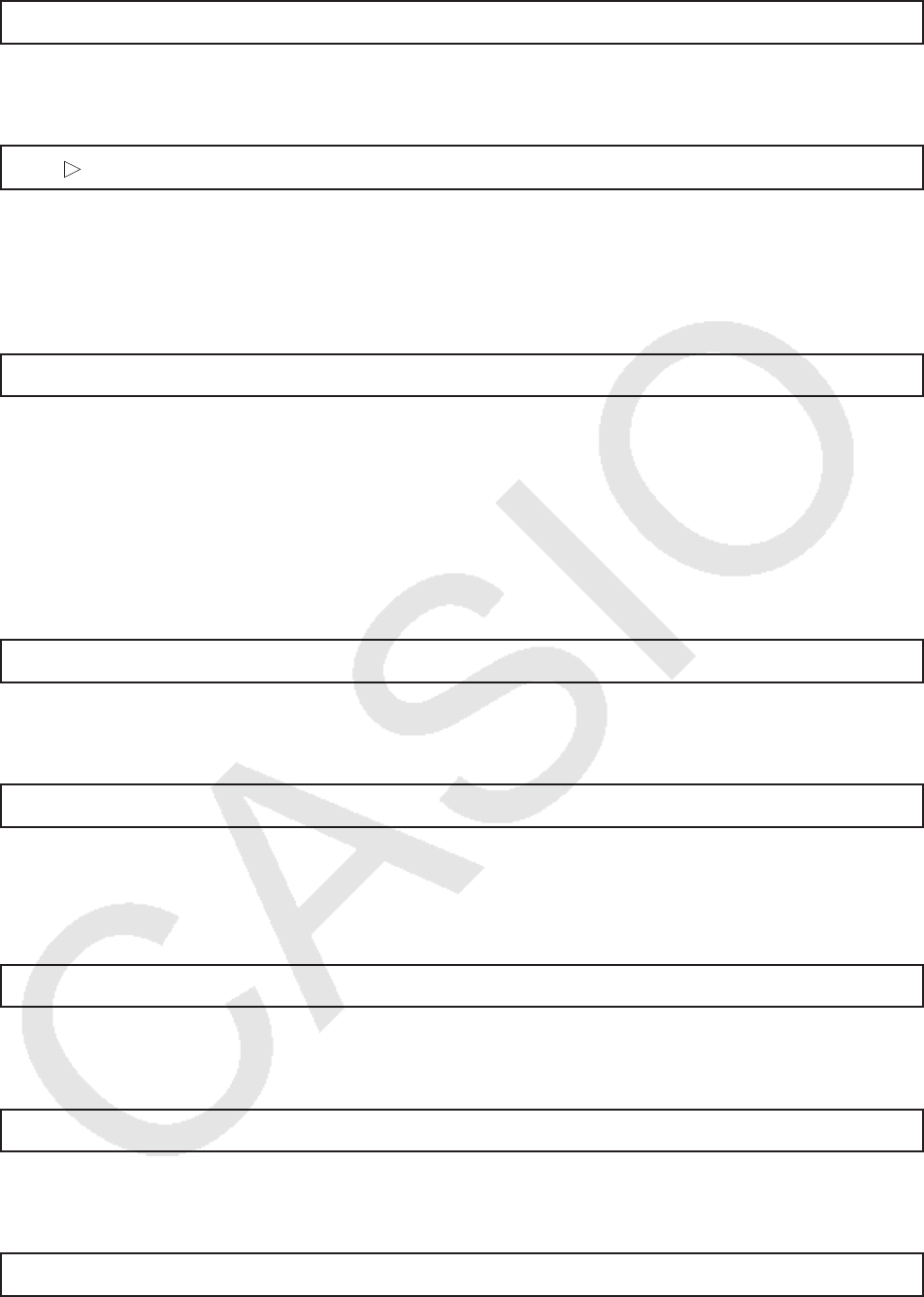
8-19
Exp(
Function: Converts a string to an expression, and executes the expression.
Syntax: Exp("<string>"[)]
ExpStr(
Function: Converts a graph expression to a string and assigns it to the specified variable.
Syntax: ExpStr(<formula>, <string variable name>[)]
Description: A graph expression (Y
n
,r,X
t
,Y
t
, X), recursion formula (a
n
, a
n
+1
, a
n
+2
, b
n
, b
n
+1
, b
n
+2
,
c
n
, c
n
+1
, c
n
+2
), or function memory (f
n
) can be used as the first argument (<formula>).
StrCmp(
Function: Compares “<string 1>” and “<string 2>” (character code comparison).
Syntax: StrCmp("<string 1>", "<string 2>"[)]
Description: Compares two strings and returns one of the following values.
Returns 0 when “<string 1>” = “<string 2>”.
Returns 1 when “<string 1>” > “<string 2>”.
Returns –1 when “<string 1>” < “<string 2>”.
Strlnv(
Function: Inverts the sequence of a string.
Syntax: StrInv("<string>"[)]
StrJoin(
Function: Joins “<string 1>” and “<string 2>”.
Syntax: StrJoin("<string 1>", "<string 2>"[)]
Note: The same result also can be achieved using the “+” command (page 8-20).
StrLeft(
Function: Copies a string up to the
nth character from the left.
Syntax: StrLeft("<string>",
n[)] (0 n 9999, n is a natural number)
StrLen(
Function: Returns the length of a string (the number of its characters).
Syntax: StrLen("<string>"[)]
StrLwr(
Function: Converts all the characters of a string to lower case.
Syntax: StrLwr("<string>"[)]


















